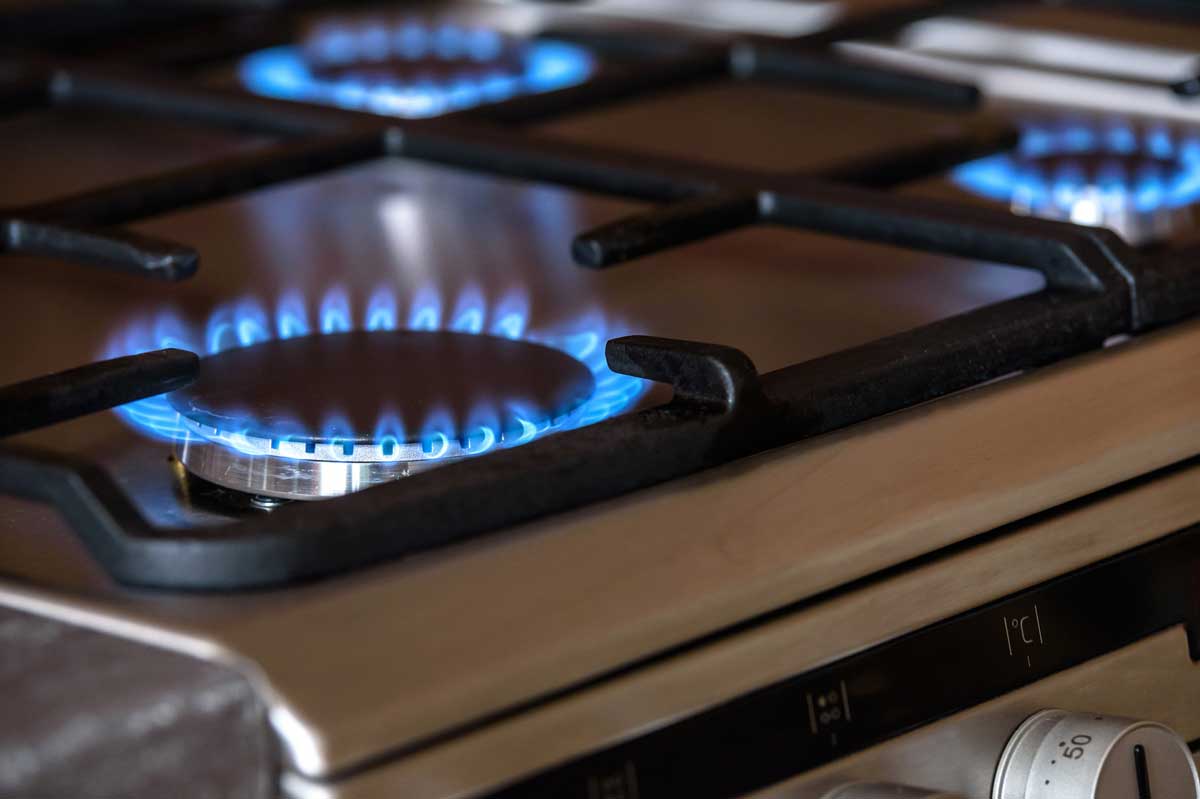We all love the idea of “sticking it to the man” but when it comes to home and commercial appliances, is it worth switching to natural gas? If you believe you are currently in your forever home, will retire and plan to die there, then the answer may be a no-brainer – yes. However, if you eat out 6 days a week, you may have a different answer than if you like to take long hot showers every day. Your next question then might be, which appliances should I switch over?
Common Residential and Commercial Natural Gas Appliances
Here is a common list of residential and commercial appliances (not including install) that can run on natural gas, along with price expectations:
- Furnaces – can range from $6-8k depending on the size of the home – much more if ducts need to be run.
- Gas fireplaces – gas inserts and fireplaces start at about $2k and go up from there depending on heating capacity and design. They generally require a vent to the outside. The savings difference over electric fireplace can be quite substantial.
- Gas ovens, cooktops & ranges – start at about $300 up to $10,000. This is a matter of preference as some people don’t want an open flame in their kitchen due to the safety of small children & pets, or their own comfortability factor.
- Water heaters – can range between $950 to $2,100
- Tankless water heater – $900-$3000
- Gas dryers – cost between $500 and $1,400 but can offer a substantial savings over electric
- Washing machines – $600-$2000
- Barbecues – range between $500-$2000 for deluxe models
- Fridges – are about $1500-$3,000
- Commercial gas ranges: $2500-$25,000
- Commercial gas fired heaters: $2,000-$8,000
- Commercial boilers: $8,500-$12,000
- Rooftop Units (RTU): $8,000-$15,000 (also used for A/C)
If you’re home doesn’t already have gas, a new gas line could run you $750-$2000 or more (even more for a commercial building as distances tend to be longer). If you’re getting it done, it’s always handy to have the gas fitter add more switched lines than what you need. In many places you can do the internal line runs yourself in your own home, but you’ll need to get a permit and inspection before turning them on.
While switching to gas appliances typically costs more, in the long run you’ll save much more on utilities. Switching to natural gas can save you 30% or much more in electricity and about 66% if switching from oil. Electricity is sold by the kilowatt-hour (kWh) while gas is sold by m3 (British Thermal Units BTUs or cubic feet in the US). In order to calculate your savings for each appliance, you’ll need to estimate the amount of time you use it on a monthly basis. Then you multiply those hours by both your average cost/kWh of electricity, vs. your cost/cubic feet of natural gas.
For example, in Ontario if you run your oven an average of 30 hrs/month:
- At $0.15/kWh, a 2400 watt over would cost (72kWh/month) =$10.95/month
- Approx equivalent of 6.9m3 of natural gas cost (@$0.38/m3) =$2.66/month
- Difference of $99.48/yr in savings so your gas appliance cost should pay for itself over 2-5 years
As you could imagine, the savings on electric water heater costs would also be quite significant since it runs all the time.
Some Benefits to Switching from Electric to Gas Appliances
- They tend to be more to purchase but use less energy overall to operate
- One benefit to natural gas appliances is that they heat up instantly, whereas electrically powered appliances take a while to warm up, wasting energy. We all know this from waiting for an oven to heat up.
- Natural gas appliances are always connected to the city supply so your tank never needs to be refilled (like with oil or propane), and you never need to chop wood and feed it endlessly.
- Natural gas also tends to be the cheapest form of fuel heating (compared to propane, oil & electric).
- Having gas appliances generally adds value to your home as well (not necessarily your office real estate), as it will save potential buyers on their utilities, as they are considering total monthly expenses in their purchase.
- Natural gas is also considered the more ecologically friendly choice over electric.
- Gas clothes dryers heat up quickly and get hotter than their electric counterparts, allowing your clothes to both dry faster, and last longer since they spend less time tumbling at high temperatures.
- Oil furnaces tend to cost 3x more in fuel than natural gas. A $300 monthly oil bill is equivalent to a $100/month natural gas bill for the same sized home or office, so converting over to a natural gas furnace will pay for itself in a matter of 2-3 years.
Perhaps the only real drawback to having natural gas in a home or commercial space is the risk of a leak. Since a natural gas leak can be disastrous either from asphyxiation or explosion, it is important that you have your appliances checked for leaks annually or after renovations, especially if any gas appliances were moved. This inspection may cost you $100-$300 depending on how many you have. A gas and carbon monoxide detector is recommended within 12 ft of every gas appliance, as well as required in Ontario by every bedroom.
If you are looking at taking the leap to converting an electric appliance in your home or office to natural gas and need to run a new gas line for it, we would be happy to offer you a quote. Please give us a call for a free quote at: 647-591-2683 or fill out the form below.

